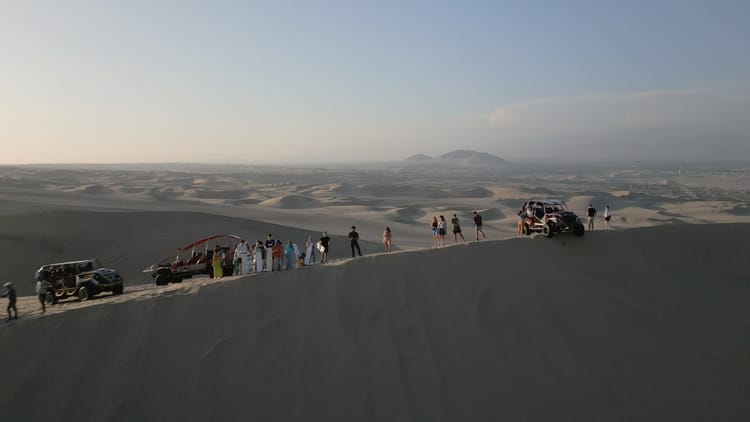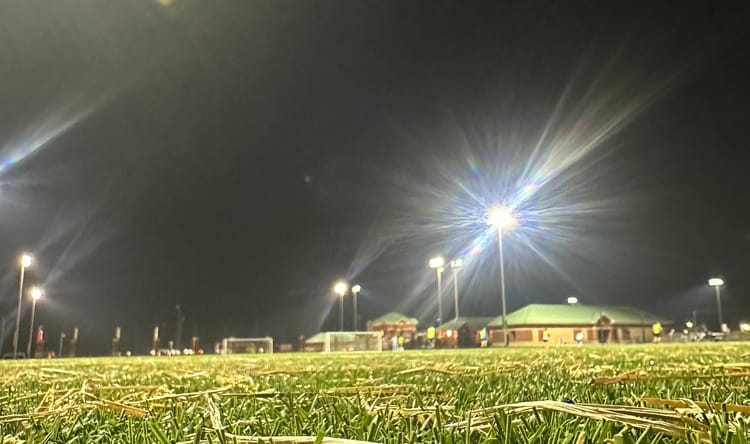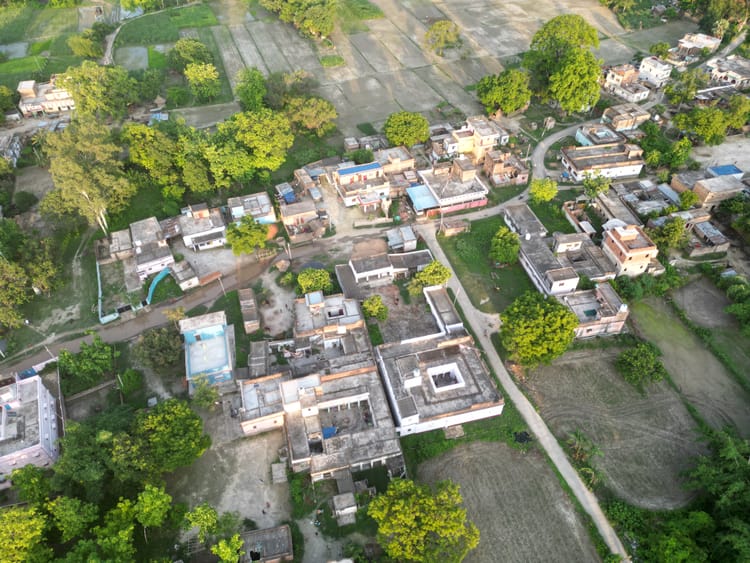Going with the flow

It was just two weeks ago that I thought I would be flying to Boston today. I was excited for the kick-off to the NSF I-Corps program and to visit a new city (for me) that is so full of historical character and modern marvels. About two weeks ago just as my hotel and flights were booked, there was an abrupt cancellation of the program followed a week later by an equally surprising transition to a fully virtual program. In a way, it feels like a continuation of the last 7 months. Since August 2019, there has been a lot of rapid change, uncertainty, and ambiguity regarding many aspects of my life. Adopting a "going with the flow" mindset has not only kept me afloat in the past 7 months but helped me seek out hidden opportunities. In light of recent events with COVID-19, I felt compelled to share some of the lessons I have learned along the way in hopes that others may benefit.
Disclaimer: I am not saying this may work for everyone. I am fortunate to not have lost employment or face immense financial hardship and I recognize that this is not the case for everyone.
Make Evidence-Based, Rational Decisions
In times of uncertainty and rapid change, a natural reaction is to freak out. However, a state of panic doesn’t help anyone. Every day we have to evaluate the information available (in multiple variables) and make decisions subject to specific constraints. I like to frame decisions in life as a series of optimization functions - I decide a course of action and that updates my variables for the next decision. It’s as simple as thinking through what is my objective (usually in the form of maximizing or minimizing a specific variable like cost, time, money, pain, pleasure, etc) and the limits or constraints (perceived and real) around the actions I can take. If you think about it, optimization functions are all around us in all aspects of life. Which project do I work on? Which opportunity do I pursue? How do I decide between this or that? What does the opportunity truly cost? What are the risks on a 4-6-8 month timeline for now? It really helps to assign a numerical value - even for non-empirical variables, just try your best to quantify them.
Figure Out What Truly Matters
If making decisions using optimization is a daily practice, it helps to take some time every several weeks to evaluate the "bigger picture". What beliefs do I hold? Am I challenging them by incorporating new information that I have learned? What truly adds value - and what doesn’t add value? The busy hustle of life before COVID-19 may have allowed many of us to avoid answering these questions. Many of us who are fortunate enough to have this spare time should use it to pause and reflect on the bigger picture - our hopes, dreams, aspirations, current plans, and future trajectories. A good framework for doing a lot of this thinking is Zingermann's hot-pen visioning technique. The idea is to spend about 20-30 minutes just writing what comes to mind. Imagine the best possible future and with a specific date in mind write about everything you’re doing. Make it realistic but also inspiring and share it with friends. When you write a vision and “guiding principles” if you will for yourself, it adds a lot of clarity and mental calm during all the chaos.
Habits are better than goals
When timescales are uncertain, goals don't excel; instead, habits keep us on task. For those of us working from home, it is very easy to spend a whole day watching TV or playing video games but having the bigger picture in mind is immediate feedback to curb procrastination. As scatterbrained as I am, a good routine can help create good habits and vice versa. My friends know this about me - I'm always going on about 168 hrs in a week. Now because I am staying home, 1-2 hrs of transportation has been eliminated, or rather I have gained additional time to allocate elsewhere. I am using that time to continue building positive habits (it's a never-ending process). For getting work done I am a big fan of the “butt in chair” method which quite literally means staying put in one place until I can get a specific thing done. It helps to know yourself and your attention span here; for example, what’s the longest you can focus on before getting diminishing returns? I also often begin my day by “eating the frog” or getting the hardest tasks out of the way early since I tend to have higher levels of energy in the morning to deal with them. Like most habit building, the key is consistency, not quantity. Having time every Sunday evening to review my week and plan the next week helps set the cadence. I also spend about five minutes every night making a quick plan for the next day. It’s not a perfect system but it gets the job done in helping me structure my time outside of a “traditional workplace”.
Focus on the things you truly control
A universal fact of life: there is so much in the world that I do not control. In fact, if you make a list, there are really three things you truly control: thoughts, actions, and perceptions. My friends know this already but I try to incorporate an ancient philosophy, Stoicism, which has made a resurgence in recent years. One of the central tenets of Stoicism is the “dichotomy of control” or the things that are up within and outside our control. Giving mental energy and time to events completely out of my control is a waste of my time (a limited resource) but it can be hard. Early on I was using my enthusiasm for data visualization and the desire to be well-informed as an excuse to obsessively check the pandemic numbers every hour. Eventually, I reached a point where I had to remind myself that a much better use of my time would be to focus on what I can control. One such example is the vitriol in American politics and its tendency to spill over into our social lives. Instead of being frustrated by the lack of leadership or the reckless behavior of others, I chose to look for the people I can advocate for and vote for politicians to enact change. The COVID-19 pandemic has intensified rhetoric on all sides. This is a great opportunity to step away from the bickering and refocus efforts on helping your community more immediately. The negative energy becomes a positive energy - simply by focusing on what I can control.
Shift your perspective
An extension of focusing on the things you truly control, reframing viewpoints, and being flexible is next on my list. While it sucks to be stuck indoors, I can reframe that thought into "wow, I am lucky to have a roof over my head in these uncertain times". Working from home can be challenging sometimes when my Internet speed is slow but I can reframe it as "I am lucky to not lose my job". In the past several months, going to the gym regularly has become an important part of my routine but instead of being upset about losing gym access, I can focus on the fact that I am healthy enough to continue meeting my fitness goals. If anything, this is just another reminder for all of those impacted less significantly in the short term to not take all of these privileges for granted. Not everyone has these luxuries and this realization will lead to more empathy.
Focus on the positive and help others (if you can)
For the first time in a long time, I am seeing social media used in a very positive way; examples of mutual aid groups popping up on Nextdoor and Facebook. I am choosing to focus on the heartwarming stories coming from all around the world, like volunteers who helped 3D print ventilator parts to save lives in Italy. It is exciting to see so many amateur 3D printing enthusiasts creating something of value for others. There is even an initiative in my community that is trying to coordinate folks with the time and resources who can 3D print PPE components like face shields for the local hospitals. In addition, an open source ventilator project has been organized to speed up manufacturing and help de-monopolize the industry. Companies like Dyson and Medtronic are also stepping up in their time of need. While these are challenging times, helping those in need or volunteering can be a great experience. We’re all in this together.
Going Forward
I am usually not one to speculate about structural changes (at least publicly) but I do think a black swan event like COVID-19 will challenge long-held assumptions. First, others have said this beautifully and I agree: remote work will become more acceptable. Remote work can help build distributed workforces and also bring “tech prosperity” to the middle of America. Second, I think people will take open source hardware more seriously. I can totally see for-profit, open source backed medical device companies popping up in order to demonopolize the medical devices industry. Third, the economic impact looks bleak. Growing inequality has the potential for serious ramifications as our systems are shaken to the core. I think conventional wisdom may be challenged. Whilst the predictions are dark and the path forward may be unclear, all of this can be a catalyst for much-needed change. I urge you all to go with the flow; it’s not easy, but then again few things in life are easy. In times like these, we must do what we can to continue marching on. If you are reading this, I hope you found some value in my words and are able to take some time today and reflect on the bigger picture. Stay safe and healthy and let’s all do our part to flatten the curve of the COVID-19 pandemic.




